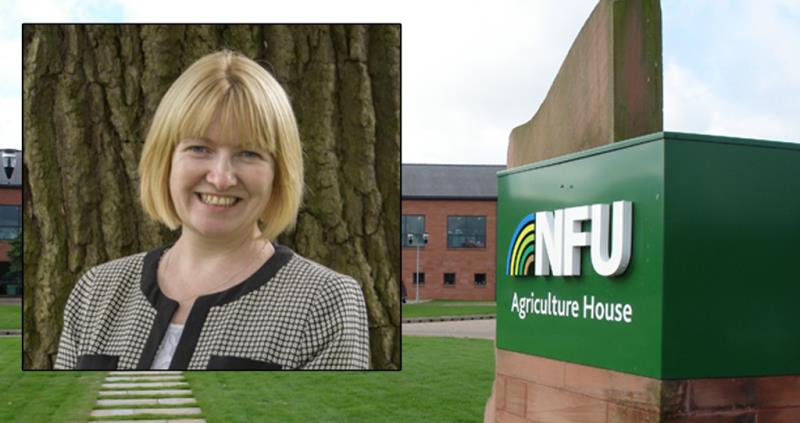NFU chief EU exit and international trade adviser, Gail Soutar, takes a closer look at Prime Minister Theresa May's recent speech in Florence. She writes:
She was clear that the UK will cease to be a member of the European Union on 29 March 2019 and restated the government’s principles of negotiation set out in the pre-election Lancaster speech (ie Brexit means taking the UK outside of the single market and the EU’s customs union).
However, she also outlined plans for a time limited implementation period of around two years, from when the UK leaves the EU, when access to one another’s markets would continue on current terms. This to ensure that businesses will have to plan only for one set of changes.
During this implementation period, people will continue to be able to come, live and work in the UK, but a registration system will be put in in place. This will be required while a new immigration regime is developed to “re-take controls of the UK’s borders.”
In an attempt to move along the negotiations, Mrs May also stated that the UK will honour financial commitments made during the period of membership. This in effect commits the UK to the contributions outlined in the EU’s Multi-Annual Financial Framework (MFF) which runs to the end of 2020 and sees UK contributions of around €20 billion.
She called on a new economic partnership between the EU and the UK that respects the freedoms and principles of the EU, and the wishes of the British people. She specifically ruled out two existing partnership models: membership of the European Economic Area, or a traditional Free Trade Agreement such as that the EU has with Canada.
She said her government will do everything it can to “avoid friction at the border” and that there would be “no need to impose tariffs where we have none now". She said her government is committed not only to protecting high standards, but strengthening them and ruled out the European Court of Justice, or indeed UK courts being the arbiter of disputes about the implementation of the agreement between the UK and the EU.
In concluding her speech she said that when this chapter of European history is written, “it will be remembered not for a relationship that ended but a new partnership that began.”
EU reaction
Michel Barnier, chief negotiator for the EU, responded positively to Mrs May’s speech, welcoming her willingness to move forward, but called for her statement to now be translated into a precise negotiating position of the UK government. He criticised the lack of clarity in her speech on the Northern Irish border issue and reiterated the need for an agreement by autumn 2018 on the conditions of the UK’s withdrawal from the EU before talks could move on to the future relationship.
He said he would assess the financial commitment made by the UK that “no Member State will have to pay more or receive less because of Brexit” to determine whether this assurance will cover all commitments made by the UK as a member state of the EU.
The fourth round of negotiations kick off in Brussels on Monday 25 September and Michel Barnier and David Davis will no doubt wish to discuss in detail the commitments and proposals laid out by Mrs May in her speech.
NFU response
The Prime Minister’s commitment to a transitional period after the UK leaves the EU will provide important stability for farm businesses and prepares the ground for both sides to make progress in Brexit negotiations. However, more details are needed if farmers and growers are to have the certainty to plan and invest in their businesses in the future.
Farmers and growers are becoming increasingly alarmed at the prospect of a “no deal” departure from the EU. The resulting disruption to trade, access to labour and business stability would pose a fundamental threat to the viability of many of their businesses.
The implementation period that the Prime Minister spoke of will be crucial if we are to reach a Brexit settlement that backs British farming, although we await further details on exactly how such a transition will work.
We believe at least two years is needed to ensure a smooth Brexit, while also agreeing a future relationship between the EU and UK which recognises their mutual importance in terms of trade.
With over 70% of our exports of food and non-alcoholic drinks being sent to EU markets, the NFU has been making the strongest case for a comprehensive free trade agreement between the EU and UK.
We were pleased to hear the Prime Minister say there is no intention to impose tariffs where none currently exist, which the NFU takes as a strong commitment to securing a free trade deal with the EU.
Any agreement should maintain as far as practicable the free flow of agri-food products between the EU and UK, and following the Prime Minister’s speech this remains a realistic prospect, although much now depends on proper progress being made in the negotiations.
We were also very interested to hear the Prime Minister’s commitment to maintaining free movement of people involving a registration system for new arrivals. However, the industry desperately needs more detail on how the immigration system will work both during and after the transition – vague pledges and offers are not enough if potential workers are to be reassured that they can legally take up the jobs on offer.
The Prime Minister’s speech reflects many of the Brexit policies the NFU has proposed since the EU referendum. Despite the lack of detail, we hope that the speech will move negotiations forward so that there is stability for agriculture, businesses, the economy and society at large after Brexit.
Brexit means hard choices – politicians on all sides must now start being more honest about the trade-offs involved and the difficult questions that need answering if we are to make it a success.
